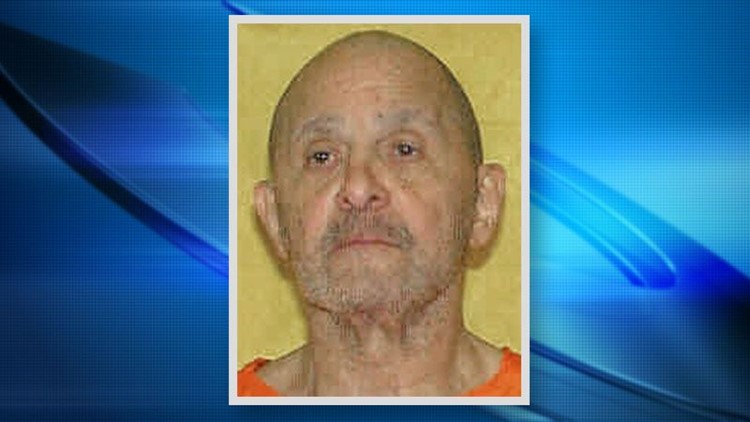LUCASVILLE, Ohio (AP) — Ohio called off the execution of a condemned killer with multiple health problems on Wednesday, because members of the state's execution team were unable to find a vein to insert an IV that would administer the lethal drugs.
It was only the third time in U.S. history that an execution has been called off after the process had begun.
The execution team first worked on both of Alva Campbell's arms for about 30 minutes Wednesday while he was on a gurney in the state's death chamber and then tried to find a vein in his right leg below the knee.
Members of the execution team used a device with a red flashing light that appeared to be a way of locating veins while also periodically comforting Campbell, patting him on the arm and shoulder.
About 80 minutes after the execution was scheduled to begin, the 69-year-old Campbell shook hands with two guards after it appeared the insertion was successful. About two minutes later, media witnesses were told to leave without being told what was happening.
Gary Mohr, head of the Ohio Department of Rehabilitation and Correction, said the team humanely handled the attempt, but the condition of Campbell's veins had changed since checks in Tuesday.
He said he called off the execution after talking with the medical team. "It was my decision that it was not likely that we're going to access veins," Mohr said.
Campbell, who was scheduled to die for killing a teenager during a carjacking two decades ago, will be sent back to death row and there will be some consideration for a future execution date, Mohr said.
Prison officials brought him into the death chamber in a wheelchair and provided him a wedge pillow on the gurney.
Campbell's attorneys had warned the inmate's death could become a spectacle because of his breathing problems and because an exam failed to find veins suitable for IV insertion.
They argued he was too ill to execute, and also should be spared because of the effects of a brutal childhood in which he had been beaten, sexually abused and tortured.
Campbell has suffered from breathing problems related to a longtime smoking habit. His attorneys said he has required a walker, relied on a colostomy bag and needed breathing treatments four times a day.
Franklin County prosecutor Ron O'Brien called Campbell "the poster child for the death penalty." Prosecutors also said Campbell's health claims were ironic given he faked paralysis to escape court custody the day of the fatal carjacking.
On April 2, 1997, Campbell was in a wheelchair when he overpowered a Franklin County sheriff's deputy on the way to a court hearing on several armed robbery charges, records show.
Campbell took the deputy's gun, carjacked the 18-year-old Charles Dials and drove around with him for several hours before shooting him twice in the head as Dials crouched in the footwell of his own truck, according to court records.
He had spent Wednesday morning praying and watching TV, said JoEllen Smith, a prisons spokeswoman.
The U.S. Supreme Court a day earlier refused to stop the execution. Last week, Republican Gov. John Kasich denied Campbell's request for clemency.
Earlier this month, Campbell lost a bid to be executed by firing squad after a federal judge questioned whether lawmakers would enact the bill needed to allow the method.
RELATED COVERAGE



